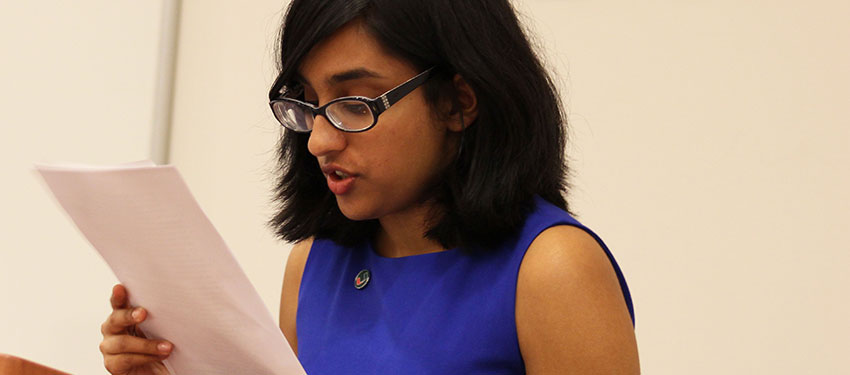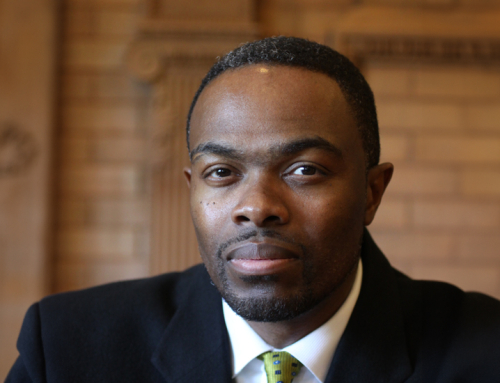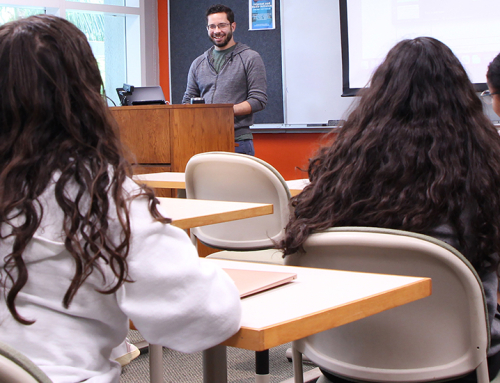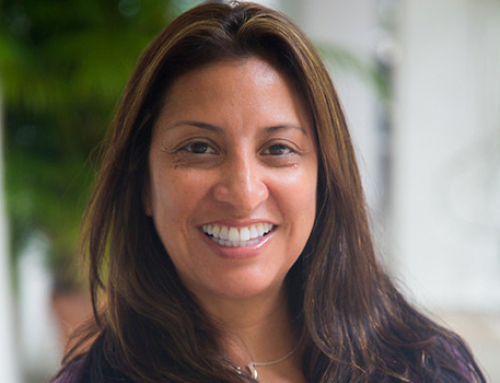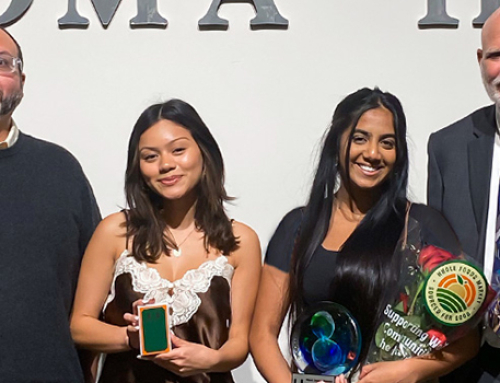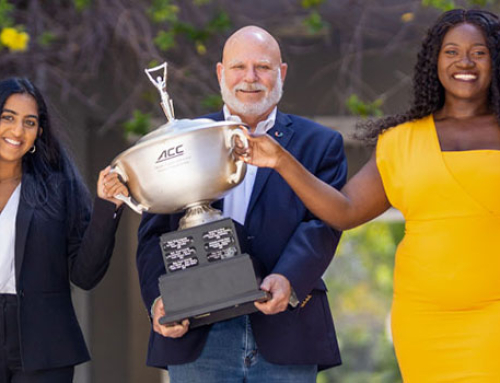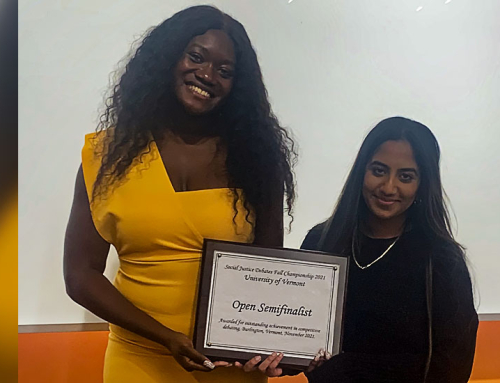Should the United States Electoral College be abolished? That was the topic presented to debaters at the Third Annual ACC Debate Championship Tournament held April 1-2. Presented by the ACC Academic Consortium, for two days students from 10 ACC member schools argued their position on the topic, advancing in the tournament through a bracket system, much like athletic ACC tournaments. The University of Miami Debate Team won the Coastal Division, but lost the championship to the team from Wake Forest.
“Debate has the competitive value and excitement of sports combined with educational objectives. Academic debate, like what we experienced in the ACC tournament, offers outstanding students from our excellent universities the opportunity to engage in important civic discourse, to apply the skills and knowledge they are learning in their academic programs, and to network with young people who will become our civic leaders,“ said David L. Steinberg, senior lecturer and director of the University of Miami Debate Team.
Six judges evaluated the debates taking into account the strength of the arguments, research, and other criteria. In addition to UM, the other competing universities were: Wake Forest, Boston College, Clemson University, Duke University, Florida State University, Georgia Tech, The University of North Carolina at Chapel Hill, The University of Notre Dame, and The University of Pittsburgh.
“The ACC, by supporting this program, has endorsed the development of the individual talents of the student participants, the collective discourse about important issues generated by students representing our conference, and the growing connectedness of the best ACC students. It makes the ACC look good, and for good reason,” said Steinberg.
Anna Shah and Virgilio Capote from the UM Debate Team represented the university. The UM Debate Team is coached by Steinberg and Patrick Waldinger, lecturer and assistant director of the University of Miami Debate Team.
Shah is a senior majoring in neuroscience and minoring in chemistry.
“Anna Shah was recently recognized as a Summa Cum Laude National Debate Scholar,” said Steinberg. “During her time at UM, she has been an outstanding debater, student, and citizen. She is a wonderful young person with a commitment to service and leadership. As a graduating senior, she was an obvious choice as someone who represents the best of UM Debate.”
Capote is majoring in communication studies and minoring in philosophy. He is expected to graduate in 2018.
“Virgil was an outstanding debater for Miami-Dade College before bringing his talents to UM. He has succeeded in Policy and Parliamentary debate, and has shined in public debates, including twice representing UM Debate vs. the Irish Debate Team. He won first place in Jamaica in Extemporaneous Speaking at last year’s Pan American Debate Championships. His enthusiasm and passion clearly come through in his debates, making him a great choice,” said Steinberg,
This tournament was Shah’s last debate for UM.
“It was an immense honor representing UM at the ACC tournament. The UM Debate Team has been such an enriching experience for me, so it was incredible to end my debate career at my home campus in front of friends and family,” said Shah.
Capote said he “felt proud representing the university.”
“It’s a rare opportunity most students don’t have, so I think I’m pretty lucky to have coaches that believed in me,” said Capote.
For the tournament, each university sent one team of two undergraduate students. The 10 participating schools were divided into their respective ACC division. Competing in the Atlantic Division were: Boston College, Clemson, Florida State, Notre Dame, and Wake Forest. Competing in the Coastal Division were: Duke, Georgia Tech, UM, UNC, and Pitt.
The two-person team from one university debated against the team from another university within their same division. The tournament’s debate format was based on the Lafayette Debates, a hybrid between intercollegiate policy and parliamentary formats.
Each team competed in at least four preliminary debates. A winning team for each division was selected and each individual speaker was awarded points on a 30-point scale. UM’s Shah and Capote won fifth and fourth place speaker in the tournament, respectively. The other speaker winners were; third place, Josh Schulster, Florida State University; second place, Adam Tomasi, Wake Forest; first place, Brent Mitchell, Wake Forest.
The winning university from each division debated for the championship trophy. UM won the Coastal Division, but lost the championship trophy to the team from Wake Forest.
“So I thought that [Wake Forest] did a really good job of identifying the nuanced differences between their proposal of shifting to a popular vote system where one person has one vote and a system that the University of Miami was suggesting in which we have a proportional allocation based upon the districts within the state,” said Ed Lee, judge for the ACC Debate Championship Tournament and executive director of community at Emory.
This year’s focus on the Electoral College is a timely one.
“The 2016 presidential election drew our attention to the vital importance of how our democracy selects its leaders. Discussing the Electoral College enabled us to focus on the nature and goals of presidential selection, and the implications of the process on our lives. We all learned about the Electoral College in middle school civics class, but never knew how so critically important it could be. Researching and debating the institution was the starting point for the discourse of citizenship,” said Steinberg.
In the 2016 presidential election, Donald J. Trump lost the popular vote by almost 3 million, but won the presidency with 304 Electoral votes.
“The topic was very relevant especially given what has happened in recent elections. I have always been formally against the Electoral College. I feel that reform is needed to a system that is 200+ years old,” said Capote.
The U.S. Electoral College is a process laid out in the Constitution to elect the president and vice president of the United States. Each state has a set number of electoral votes equal to its respective number of representatives and senators in Congress. The Electoral College is comprised of 538 electors. A majority of 270 electoral votes is needed to win the presidency.
“I think this tournament has made me better at understanding the other side of the conversation more,” added Capote. “Something that is oddly neat about debate is that it often forces you to walk in the shoes of another. Whether you agreed with them before the debate round or not.”
The ACC Debate Championship Tournament is an opportunity for students from different parts of the country to share ideas and “it would be very difficult for that to take place without the support and the sponsorship of an organization like the Atlantic Coast Conference,” said Lee.
“One of the things that debate provides is an opportunity to bring a diverse collection of people together who have different perspectives of the world, different understandings of their reality, and to then have a conversation about salient and important issues that are going,” said Lee.
To view photos of the ACC Debate Championship Tournament please visit, https://www.facebook.com/pg/UMSoC/photos/?tab=album&album_id=10155270063623395. To view videos of the debates please visit, http://debate.miami.edu/2017/04/03/acc-debate-championship-tournament-live-streams/.
